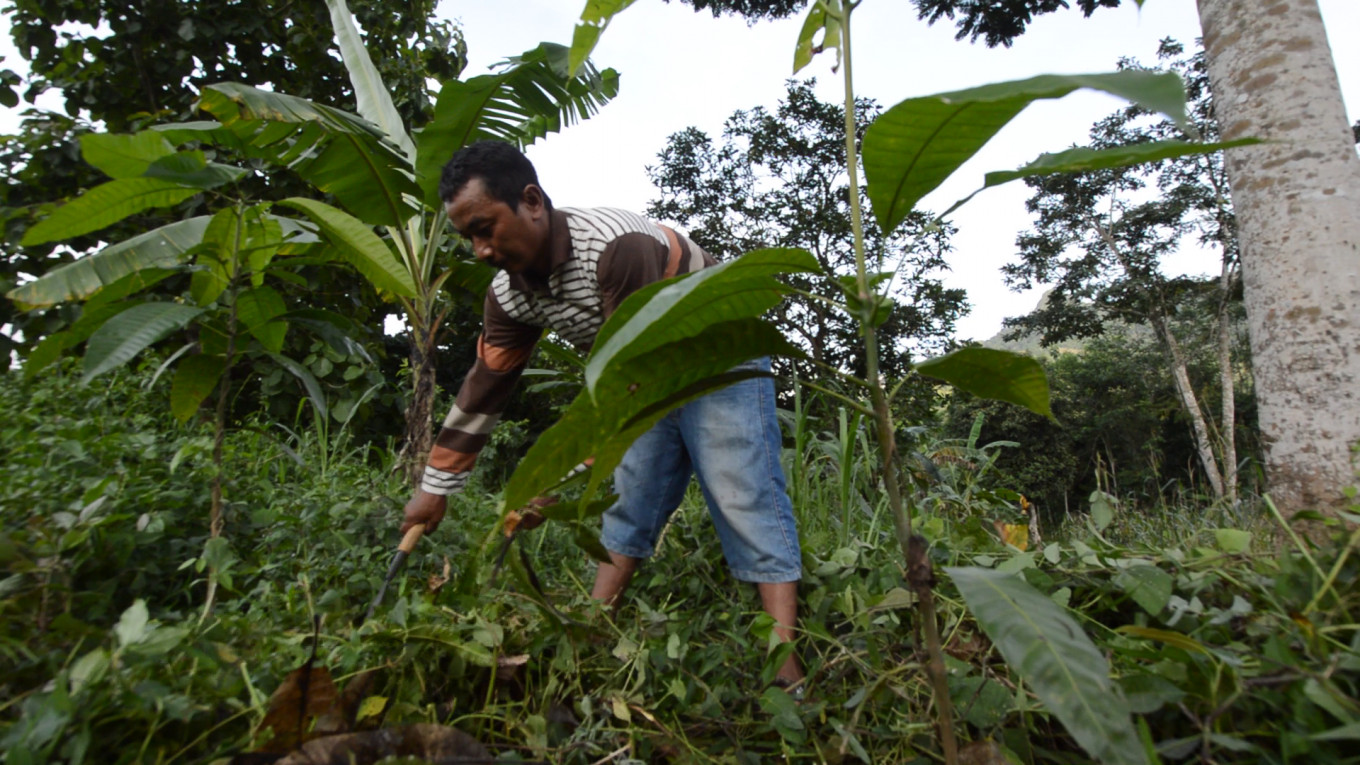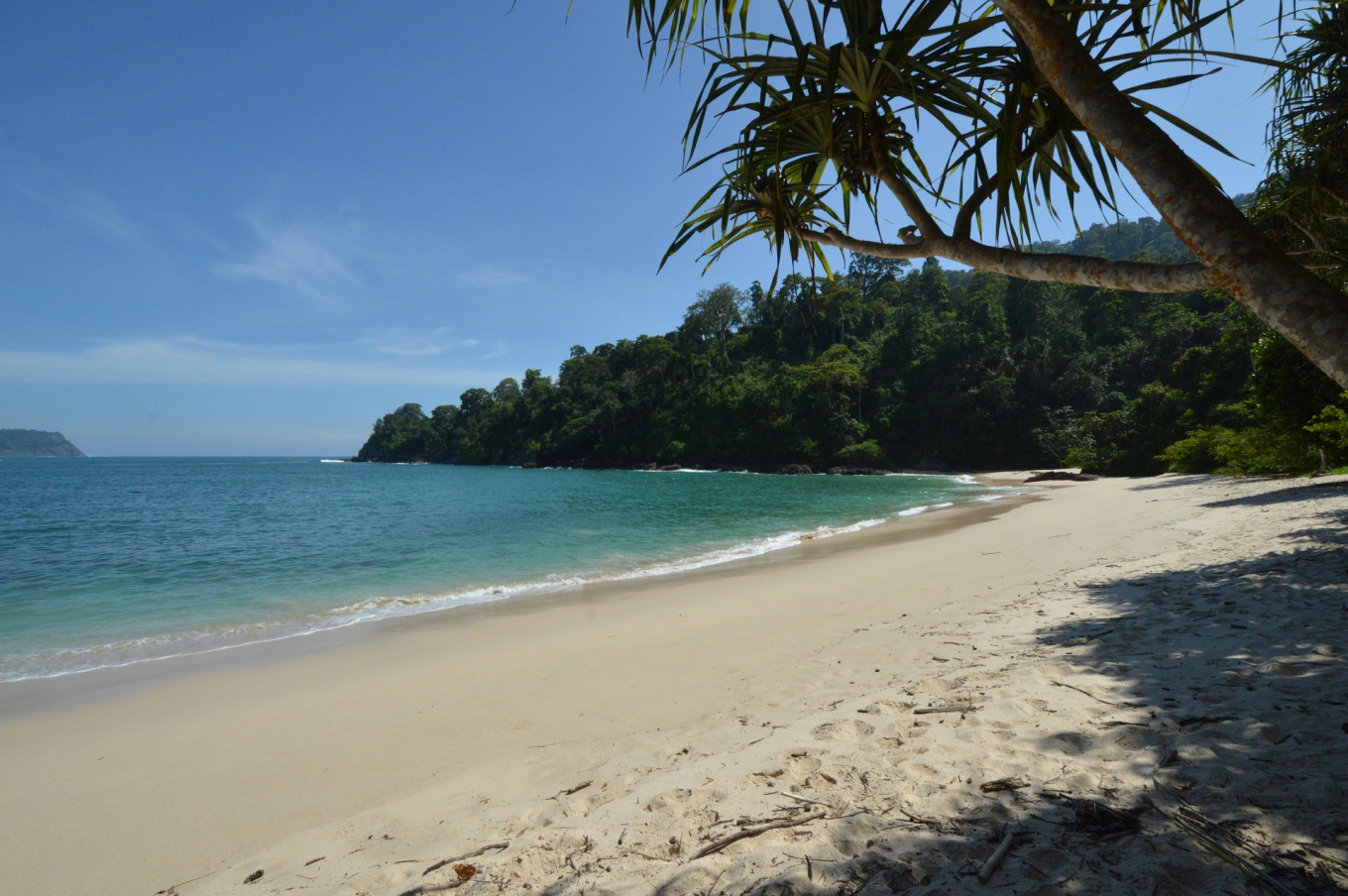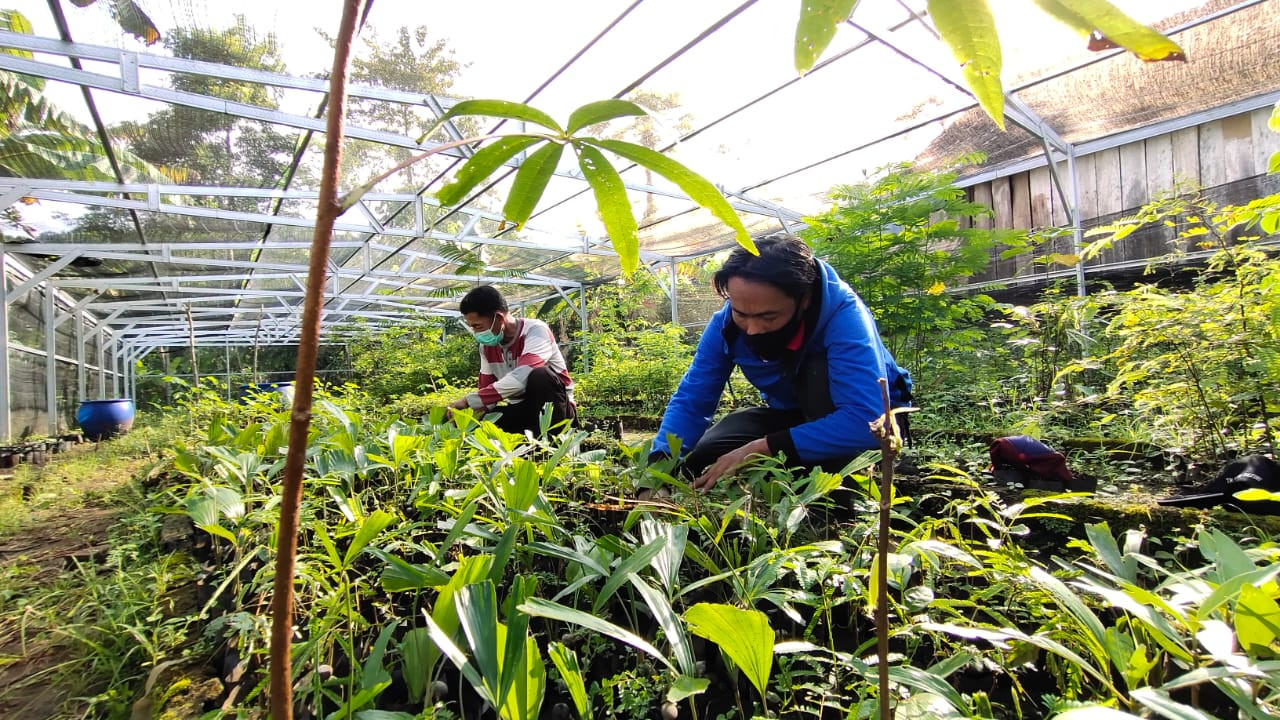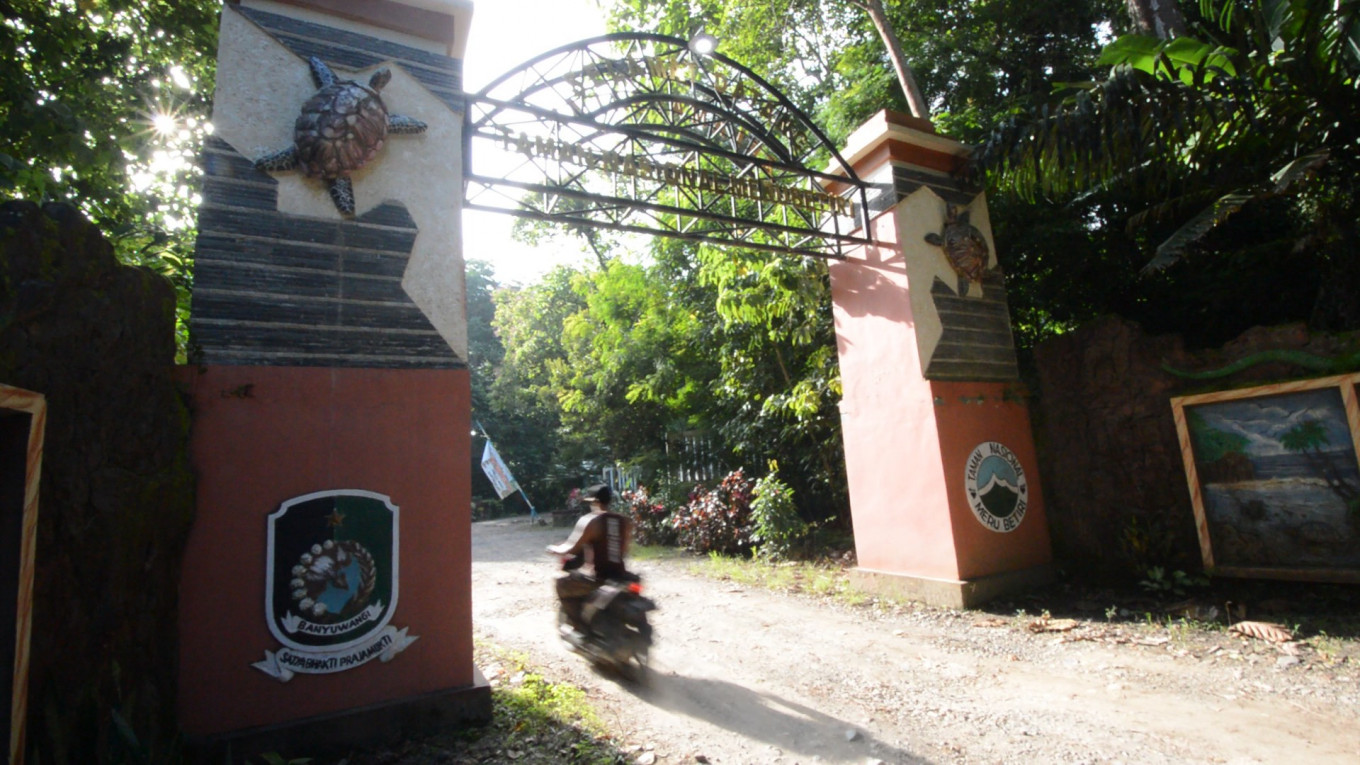
One day in June 2006 became a turning point in the life of Suhartono, now 42, a resident of Sanenrejo village in Temporejo district, Jember regency, East Java. Back then, he made a living by cutting down trees illegally in the protected Meru Betiri National Park.
On that particular day, after he had cut down a 20-meter glintungan (bishop wood tree), the log rolled down and fell onto his feet, causing him to drop a running chainsaw he was holding to cut the log.
“The chainsaw fell onto my left calf, tearing the muscle. I was immediately carried by eight other loggers for 2 kilometers out of the forest. Luckily, I received treatment at the Jember Regional General Hospital,” Suhartono told The Jakarta Post in early February.
“On that same day, I uttered my intention to stop stealing trees from the forest,” he went on to say.
Today, Suhartono leads a group of dozens of former illegal loggers in the village who call themselves mantan berandal alas (former forest robbers). They worked with local authorities on alternative sources of income, such as cultivating crops and producing batako (concrete bricks).
The alternative sources of income allowed them to leave their old lives behind, since they were prohibited by the authorities from cutting down trees in the forest. Some were even asked to plant new trees in an attempt to restore the degraded forest.
The government declared the 50,000-hectare Meru Betiri forest, which lies in the East Java regencies of Jember and Banyuwangi, a conservation area in 1972. In 2016, the Environment and Forestry Ministry revised the total area of the national park to 52,626 ha.
Villagers seek other income to protect it. But deforestation is still happening in the regencies, including within the national park. According to data from Global Forest Watch, Banyuwangi and Jember are the two regencies with the most tree cover loss in the province between 2001 and 2019, with 15,800 ha and 12,200 ha of forest destroyed, respectively.
Slowly but surely, the two regencies have gained back forest. GFW recorded that Banyuwangi had the greatest tree cover gain between 2001 and 2021 with 3,230 ha, while Jember was in third place with 1,840 ha.
‘My wife’s death might be a warning for me’
Suhartono is not the only illegal logger to stop stealing trees from Meru Betiri and look for alternative sources of income.
Rochmat, also known as Mat Seken, 51, has been cutting down trees in the forest near his house in Andongrejo village in the same district since he was a senior high school student. He intended to stop cutting down the forest when he had obtained a total of Rp 1 billion (US$69,336) from the illegal business.
Several illegal loggers said they could make around Rp 30 million per month from selling the logs.
But when he was around Rp 65 million short of his target, his wife was diagnosed with cancer. Although Rochmat spent more than Rp 800 million for his wife’s treatment, she died from the disease.
“I thought that my wife’s death might be a warning for me that a large sum of money I obtained from this wrongdoing won’t do me any good. I decided to quit the illegal logging business,” Rochmat told the Post.
With several other former illegal loggers, Rochmat established the Andongrejo Villagers Network (Jawara), which works to develop ecotourism near the village that would add extra money for their pocket without destroying the forest.
The Meru Betiri National Park is known for several tourist destinations, such as Green Bay and Sukamade Beach — the latter is also a conservation site for sea turtles. But since they are located within the national park, authorities are prohibited from building large infrastructure, such as roads, that potentially disrupt the protected area for conservation.

A humane approach
Maman Surahman, the head of the national park, said the alternative sources of income were a part of the nature conservation cooperation between authorities and local residents in 10 villages around the conservation area.
He said that the national park management had been using a humane approach in handling the issue of illegal logging and forest restoration within Meru Betiri.
“We went to their homes one by one and sat with them to talk about the importance of forest conservation. We also proposed to them these alternative sources of income because they cut the forest illegally to make ends meet,” Maman said.
While admitting that there were still villagers engaged in illegal logging within the national park, he claimed the deforestation rate had dropped significantly thanks to the cooperation with the villagers.
According to the national park management, at least 112 villagers have joined four community groups to work on nontimber forest resources, such as batako production and mushroom cultivation. Some groups also offer ecotourism within the national park.
In the Banyuwangi part of the Meru Betiri National Park, villagers were assisted in starting farms that produce duck and quail eggs. These villagers are planning to expand their business to goat raising.
Some villagers sell their products, such as traditional herbal drinks, on e-commerce platforms.
“We’re working together to make sure that their business activities are sustainable and in line with the nature conservation principles,” Maman said.
In exchange for alternative sources of income, the park management asked the villagers to participate in the forest restoration efforts within Meru Betiri. Once responsible for cutting down trees, the former illegal loggers are now tasked with reporting any wrongdoing to the authorities.

Some villagers have received assistance to work on nurseries for tree seedlings that will be planted in the national park. One of them is Sutarto, a farmer from Sanenrejo village, who has worked to replant trees in the national park since 2017. At a nursery in the village, he prepared seeds of durian, jackfruit and sugar palm that will be planted by Suhartono and his colleagues in the forest.
In the restoration project in Meru Betiri, the national park management and villagers prioritized planting fast-growing native plants, such as blackboard tree or pulai (Alstonia scholaris), or so-called multipurpose trees, such as durian and jackfruit, which can also be harvested for consumption.
“The village has many opportunities. But until now, we’re still limited to harvesting produce and selling it at the market. In the future, we can hopefully process our harvest before selling it,” Sutarto said.
Climate crisis mitigation
The Meru Betiri forest is deemed an important location not only for conservation purposes but also for mitigating the climate crisis by sequestering carbon emissions. The forest is one of the last tropical rainforests in the country’s most populous island of Java.
Between 2013 and 2014, the forest hosted one of 70 pilot projects for a tropical forest conservation plan across the country as part of the Reducing Emissions from Deforestation and Forest Degradation (REDD+) initiative.

The project comprised of several phases that started with planning and initiating forest protection and restoration measures that involved local residents and ended with monitoring and verifying carbon emissions saved from the efforts.
In 2011, authorities set a baseline emission reduction target of 29 million metric tons of carbon dioxide equivalent (CO2e). Four years later, authorities declared that the project had failed in reaching the emission reduction targets as well as in curbing deforestation and significantly restoring parts of the forest.
According to data from the national park, around 3,300 ha, or 6.5 percent of the total national park area of 52,626 ha, had been deforested as of July last year.
“Therefore, it’s important for us to reduce local residents’ dependence on timber from the forest. We hope this strategy will help the villagers use the forest in a more sustainable way that is in line with conservation principles,” Maman said.
This story is part of the Climate Tracker's Southeast Asia Forest Recovery Collaborative Journalism project, produced with support from the Rainforest Journalism Fund in partnership with the Pulitzer Center.






